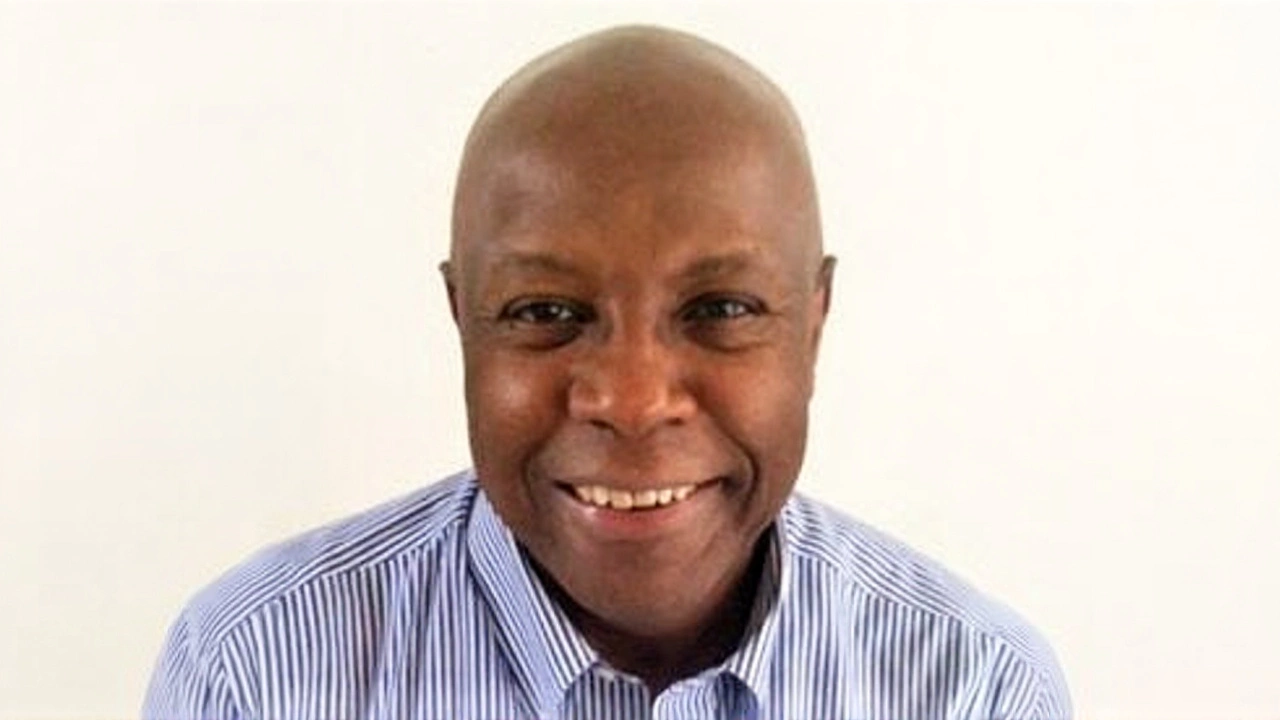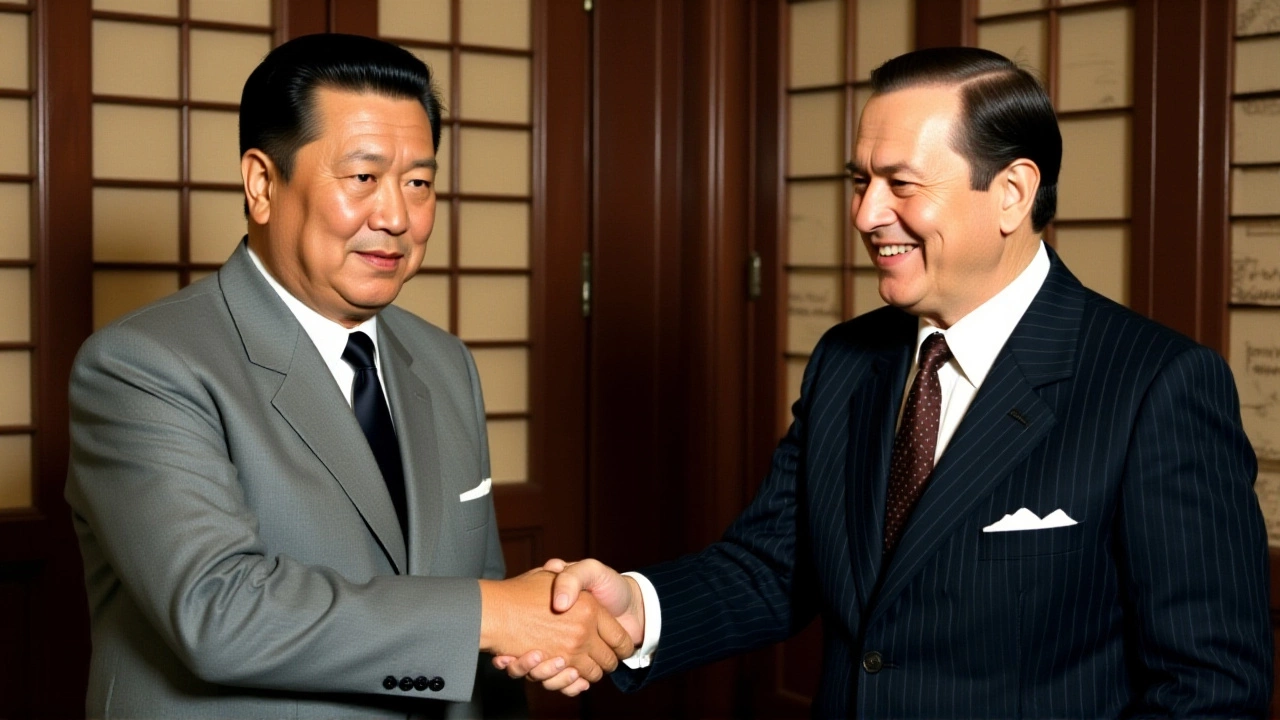
When President Donald Trump personally blocked the release of Jeffrey Epstein’s sealed documents in May 2025 — just weeks after his own Justice Department confirmed they were ready to go — he didn’t just delay transparency. He reignited a national reckoning over power, secrecy, and whether history is repeating itself. The moment, quietly documented in internal memos and later confirmed by multiple sources, came after Attorney General Pam Bondi and Deputy Attorney General Todd Blanche sat down with Trump and told him his name appeared multiple times in the files. That was the end of the release plan. The twist? They’d both been his personal lawyers before taking government posts. Now, they’re the ones deciding what the public gets to see.
What Happened in May — And Why It Matters
By mid-April 2025, the Department of Justice and FBI had completed their review of the Epstein documents. According to The Bulwark, officials were preparing to release the bulk of the files — including flight logs, financial records, and deposition transcripts — with minimal redactions. The public had waited years. Survivors were ready. But then came the May briefing. Trump was told his name surfaced in communications with Epstein’s associates, in emails with Ghislaine Maxwell, and in travel records tied to his private island. Within 48 hours, the release was shelved. "It was the safest of safe bets," one anonymous DOJ source told The Bulwark, "that it was Trump’s determination that no further disclosure would be appropriate or warranted." This wasn’t just about privacy. It was about control. And it mirrors a pattern from another scandal — one that ended a presidency.Nixon’s Tapes vs. Trump’s Files: The Unsettling Parallels
The comparison isn’t new, but it’s sharper now than ever. The Lock Haven Opinion Column laid out the chilling similarities in November 2025: both Nixon and Trump were Republicans who ran on "law and order" platforms while quietly targeting marginalized communities. Both kept enemy lists. Both had ties to powerful institutions that enabled abuse — Nixon with the CIA and "Plumbers," Trump with elite prep schools, Ivy League donors, and private equity firms linked to Epstein’s network. And both, according to historian Iwan Morgan, were more afraid of exposure than prosecution. "Nixon’s attempt to withhold the tapes went all the way to the Supreme Court," wrote the columnist. "The high court ruled that the president was not above the law." In 1974, the justices ordered the release. In 2025, there’s no such ruling. No special counsel. No Senate Select Committee. No John Dean stepping forward to expose the truth from within.The Institutional Rot: Who Else Was Complicit?
Watergate didn’t end with Nixon. It exposed the FBI, the RNC, the media, even the judiciary’s silence. The Epstein files reveal the same rot — just in a different era. The Higher Education Inquirer pointed out how elite institutions — from Harvard to Yale — had quietly accepted Epstein’s donations while turning a blind eye to his abuse. U.S. intelligence operatives were linked to his private island. Charities funded by his money vanished overnight. Visitor logs went missing. Depositions were sealed. Retirements happened suddenly. And now, the same institutions that failed then are failing again. The Justice Department, under Bondi and Blanche, has no independent watchdog. The Senate isn’t holding hearings. The House Republicans, once eager to investigate, now follow Trump’s lead — even when he suddenly "encourages" them to release the files, as Alabama Reporter noted in November. The move felt less like transparency and more like a distraction tactic — a feint before the next pivot.
Public Trust Is Crumbling — And It’s Not Just About Epstein
David Pakman’s reporting on July 29, 2025, was stark: Trump’s approval rating had plunged to 37%, with independents and even some Republicans citing the Epstein files as the primary reason. "It’s almost never the crime that ends the presidency or destroys the legacy," Pakman quoted a political analyst. "It’s the cover-up and the lies." That’s the real danger. Trump’s administration has spent months distracting from the issue — promoting tax cuts for the wealthy, eliminating the IRS direct filing program, removing Biden-era caps on overdraft fees, and attacking the Federal Reserve chair. Politico counted 47 things Trump would rather talk about than Epstein. But the public remembers. And polls show a growing belief: this isn’t about politics. It’s about accountability.What’s Next? The Little-Known Law and the Silent Senate
Senate Democrats, led by Chuck Schumer, are now pushing a 1974 statute known as the "Presidential Records Act Amendment" — a little-known provision that allows Congress to compel release of documents if they’re deemed relevant to national security or criminal conduct. The law has never been used against a sitting president. But with the House Judiciary Committee preparing subpoenas, and with the Justice Department’s internal review already complete, the pressure is mounting. The question isn’t whether the files will eventually be released. It’s whether the American public will believe it’s real this time. Will the redactions be minimal? Will names be unmasked? Or will this be another carefully curated version — like the 2019 release that left out 90% of the names?
Why This Isn’t Just About Epstein
Epstein was a predator. But he was also a symptom. His network included politicians, financiers, academics, and media figures who moved in the same circles as Trump. The files don’t just contain evidence of abuse — they reveal a system that protected the powerful. And now, the system is being asked to judge itself. If Trump’s name is scrubbed, if the documents are buried under "national security" claims, if no one is held accountable — then this isn’t a cover-up. It’s a confirmation. That the rules still don’t apply to those at the top.Frequently Asked Questions
Why are Pam Bondi and Todd Blanche so central to this story?
Bondi and Blanche weren’t just appointed officials — they were Trump’s personal attorneys before joining the Justice Department. Their prior loyalty raises serious conflict-of-interest questions. When they advised Trump to halt the Epstein file release, they weren’t acting as public servants — they were acting as defenders of their former client. This blurs the line between legal representation and government duty, undermining public trust in the DOJ’s independence.
How does the "Little-Known Law" work, and can it actually force the release?
The 1974 amendment to the Presidential Records Act allows Congress to petition the National Archives to release records if they’re relevant to criminal conduct or national security. The president can object, but the law gives Congress final authority if a two-thirds vote is achieved. It’s never been tested against a sitting president, but with Democrats controlling the Senate and growing bipartisan unease, it’s the most viable legal path left — short of a court ruling or impeachment.
Why hasn’t a special counsel been appointed like in Watergate?
Unlike in 1973, when Attorney General Elliot Richardson appointed Archibald Cox as special counsel, today’s Justice Department is led by Trump loyalists. There’s no independent watchdog. Even if a prosecutor wanted to act, they’d need approval from Bondi — who has a vested interest in blocking disclosure. Without a special counsel, there’s no one with the authority or mandate to investigate the cover-up itself — only the original crimes.
What’s the significance of Trump’s approval rating dropping to 37%?
That number isn’t just low — it’s historic for a sitting president with a strong base. The drop is driven by independents and even Republicans who say they no longer trust Trump’s transparency. Polls show 58% of Republicans now believe he’s hiding something. That erosion of support within his own party is more dangerous than any Democratic indictment — it signals a collapse of internal legitimacy.
Could this lead to impeachment like Nixon’s?
Impeachment is possible, but unlikely without a smoking gun — like a recorded order to obstruct justice. So far, there’s no public evidence Trump directly ordered the files buried. But the pattern is clear: he was informed, he halted the process, and he’s now using political allies to block any oversight. If a whistleblower emerges — or if the Senate votes to compel release — impeachment could gain traction. But right now, the Republican-controlled House won’t act.
How are these files different from the 2019 release?
The 2019 release was heavily redacted — names were blacked out, dates altered, and key documents withheld under "privacy" claims. This time, the Justice Department confirmed the files are complete and ready. The difference now is that Trump’s own name is in them. That’s why the push for release isn’t just about Epstein anymore — it’s about whether any president can bury evidence that implicates them, even after a full investigation.